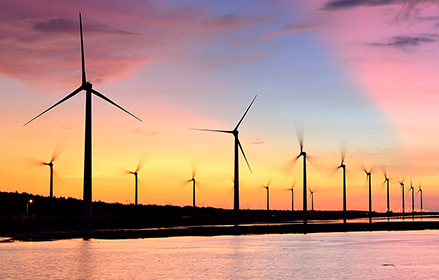Has FAME shot to the top of the alternative fuels chart?
Kenneth Kar, Future Fuels Expert, ExxonMobil Marine
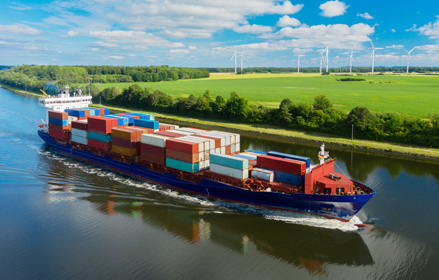
The International Maritime Organization’s (IMO) ambitions to significantly reduce the greenhouse gas emissions of the marine industry has already been the subject of plenty of constructive and encouraging debate. It has also triggered lots of practical activity; research and development is underway for a variety of lower carbon fuel options, including ammonia, hydrogen, LNG/LPG and methanol. However, it’s the ‘drop-in’ characteristics of biodiesel that’s generating some of the most positive headlines.
Bureau Veritas recently produced a report – ‘Alternative Fuels Outlook for Shipping: An overview of alternative fuels from a well-to-wake perspective’1 – that highlighted the suitability of second-generation biofuels (those that are produced from waste biomass rather than agricultural crops) to support shipping’s decarbonisation objectives. The French testing company suggested that biofuels “could be a very serious contender”.
In fact, ExxonMobil recently completed a commercial bunkering of bio-based marine fuel oil in the port of Singapore. The fuel oil was a combination of a conventional 0.50% sulphur fuel with up to 25% waste-based fatty acid methyl esters (FAME), which comprised of UCOME (used cooking oil methyl ester), a second-generation formulation.
Continuity of operations
Whatever lower GHG-emission fuels are selected (ammonia, biofuels, hydrogen, LNG/LPG, methanol), their use will create a range of related operational considerations. For example, vessel operators will need to weigh up:
- New storage and handling requirements
- Modified bunkering procedures
- Additional crew training
- Revised supply chain processes
- Safety
Biodiesel, which is being promoted as a ‘drop-in’ alternative to conventional marine fuel, minimises disruption as its use requires marginal changes to on-board operations. However, as with conventional fuels, care still needs to be taken.
A build-up of microorganisms can happen if water isn’t removed from tanks, while waxing can occur if tank temperatures aren’t properly maintained. Also, due to the high detergency of FAME, deposits on the inner surface of the tanks or pipes can be dislodged during the change-over process, potentially clogging filters. This issue can be mitigated by washing tanks and pipes before fuel switch.
Good fuel handling practices
Operational challenges are not unique to biodiesel and none of the solutions require the development of wholly new procedures. Good handling practices will remain central to safe and reliable engine operations, irrespective of fuel type. And as ever, vessel operators should contact their fuel supplier if they have any questions about fuel handling and storage requirements.
ExxonMobil continues to work with its customers and industry bodies to develop and commercialise the fuels and lubricants needed to help the marine industry meets its GHG emission objectives. Our goal remains unchanged: to safely supply the fuels the maritime sector needs, when and where they need them. That now includes biodiesel.
1 marine-offshore.bureauveritas.com/newsroom/alternative-fuels-outlook-shipping
More Fuel for Thought
-
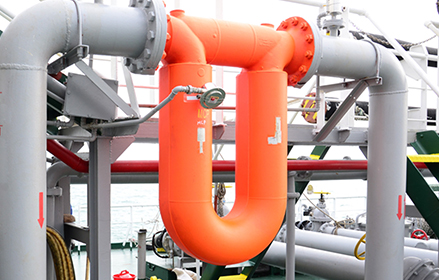
Singapore study confirms bunker benefits of using mass flow metering
Research conducted in Singapore shows the effectiveness and financial benefits of using a mass flow metering system (MFMS).
Read more -
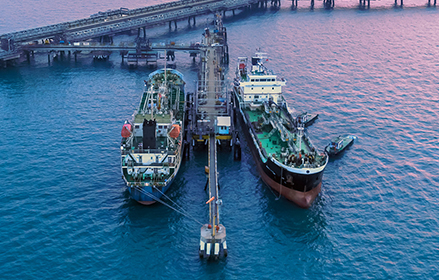
Rising to the challenge of meeting global energy needs and emission targets
Explore the complexities posed for vessel operators by the IMO’s ambition to reduce the carbon intensity of the shipping industry.
Read more -
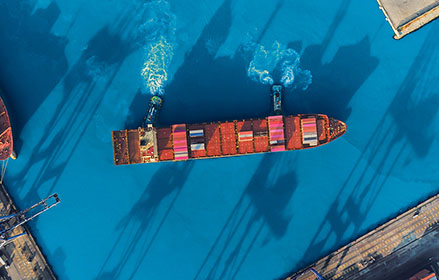
Lessons learned and taking the next step towards low carbon shipping
ExxonMobil invited senior figures from around the maritime industry to provide their insights into how the marine industry should approach future emission regulations.
Read more
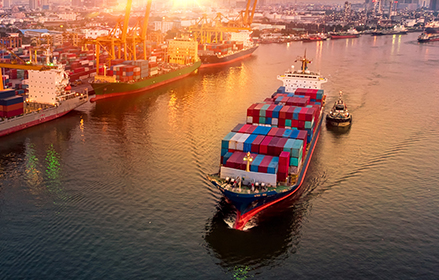
Marine Fuels
Learn more about our range of high-quality marine fuels that help safeguard your engine and comply with the latest IMO regulations.
Read more
Ports Directory
Through our global network, we deliver the right fuels and lubricants, at the right time, to the right place. Use our interactive tools to discover which lubricants or fuels are available in your market.
Read more